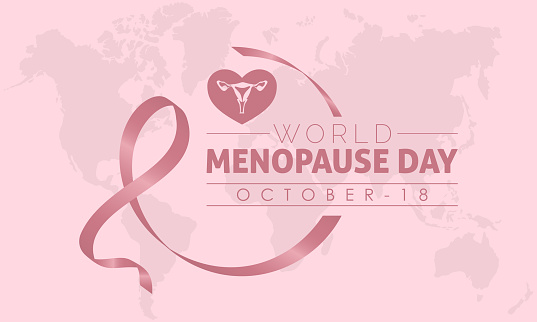
Menopause is a remarkable phase in a woman’s life. It’s not a disease but a natural transition that can be accompanied by various experiences. Besides the physical changes, this period often brings forth other life transitions: caring for aging loved ones, supporting children as they venture into adulthood, or taking on new work responsibilities.
Some women sail through menopause smoothly, bidding farewell to troublesome periods and pregnancy concerns. Others, however, may encounter hot flashes, sleep disturbances, mood swings, and more, all of which can severely affect your mental health. For them, seeking support is a valuable option.
Menopause isn’t a single moment but a process spanning several years, known as perimenopause. This journey usually starts between ages 45 and 55, lasting about seven years (or even up to 14 years). The duration depends on various factors, including lifestyle choices and health habits.
During perimenopause, your body’s production of estrogen and progesterone, crucial hormones, fluctuates significantly. This phase unfolds uniquely for every woman, impacting energy utilisation, body composition, and overall health.
If you’re experiencing common menopausal symptoms, it’s essential to acknowledge them. Seek guidance from your GP to determine whether it’s indeed menopause affecting you. They may inquire about your age, symptoms, and family history, possibly suggesting blood tests to confirm.
True menopause, marked by the absence of menstruation for a year, officially arrives later. If you’re not planning a pregnancy, contraception remains essential for at least a full year after your last period.
Postmenopause is the phase following menopause, and it’s crucial to prioritise your well-being during this period. Focus on a healthy diet, staying active, and ensuring adequate calcium intake to support bone health.
Menopause can manifest in various ways, such as:
These changes can vary in intensity and are often influenced by factors like genetics, lifestyle, and ethnicity.
Regardless of your menopausal experience, remember that support is available. Lifestyle adjustments, professional guidance, and healthcare options can help you manage symptoms and embrace this transformative phase.
Your well-being is a priority. Reach out to your GP to discuss your unique journey and explore the best ways to enhance your overall health. You’re not alone on this path—there’s support and empowerment awaiting you.
This blog was written by Mel Stead FCIPD. Mel is a qualified HR & OD Practitioner and the Chief Executive of Unmasked Mental Health.
In need of some Mental Health advice or support? Wherever you are in the UK, you can arrange a chat with one of our friendly professional team at any time.
Call us on 01422 356945 or email info@unmaskedmentalhealth.co.uk
We’re also on Facebook, and LinkedIn!
#MenopauseAwareness #EmbraceChange #WellBeingJourney”

How You Can Support Us
Unmasked Mental Health are a charity based in Calderdale with the mission to provide support to people experiencing poor mental health at the point of need and in the way in which they wish to be supported.
Our services are accessible to everyone, whether you’re an individual having a rough time, or if you’re an employer looking to give something back, supporting your employee’s mental health and well-being.
Please like, share and follow our pages on Facebook, Instagram, LinkedIn and TikTok.
Why not join our Member’s Lottery, run an event or explore other ways to support us by clicking on the Support Us drop down menu at the top of this page.
The more people we can reach, the more conversations we can start and the more lives we can improve.